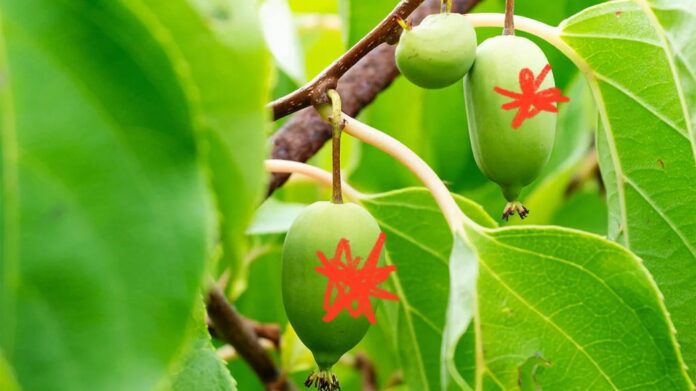
- Lung cancer is the second most common cancer in the world, with about 2 million people diagnosed each year.
- Prevention for lung cancer includes eating a balanced diet rich in fruits and vegetables.
- Researchers from Okayama University discovered juice from the Japanese sarunashi fruit could help prevent and reduce lung cancer.
Lung cancer is the
Prevention measures for lung cancer include quitting smoking, avoiding
Previous research has indicated that fruits and vegetables containing certain antioxidants may help lower a person’s lung cancer risk.
Now, researchers from Okayama University in Japan say they have found evidence that ingesting juice from the sarunashi fruit grown in Japan can help prevent and reduce lung cancer via a mouse model.
The
Sarunashi (Actinidia arguta) is an edible fruit grown in certain parts of Japan, Northern China, the Korean peninsula, and the Russian Far East.
Outside of Japan, sarunashi is also known as the hardy kiwi, kiwi berry, and Siberian gooseberry.
The fruit has a sweet taste similar to that of a standard kiwifruit. It is normally green in color and unlike kiwifruit does not have to be peeled to be eaten.
Other
The kiwi berry has previously been studied as a potential
According to Dr. Sakae Arimoto-Kobayashi, an associate professor in the faculty of pharmaceutical sciences at Okayama University and the lead author of this study, researchers decided to study the effect of sarunashi on lung cancer because as lung cancer is the
“Old people in the source area of sarunashi, Maniwa county in Okayama, traditionally eat it and say ‘sarunashi is good for health,’” she explained to Medical News Today. “Components in sarunashi juice enhance (the) repair-process of damaged DNA to prevent lung cells from becoming cancer. And components in sarunashi juice prevent the growth of cancer cells.”
The research team used a mouse model to study the effect of sarunashi juice on lung cancer cells. Mice were injected with
During the study, scientists reported that the number of tumor nodules in mouse lungs injected with NNK and given sarunashi juice were significantly lower than in mice not given juice.
Researchers also studied other aspects of sarunashi juice and its effect on lung cancer cells, such as the
In a prior study, the research team examined the effect of sarunashi juice on inflammation,
In this new study, researchers further looked at isoQ as a potential
Medical News Today also spoke with Dr. Mahmud Kara, a functional medicine expert and founder of KaraMD — a line of digestive support, heart health, and anti-inflammatory supplements to support full-body health, about this study.
He agrees with the study’s conclusions on how diet plays a crucial role in the development of chronic diseases.
“Many of the lifestyle habits or modifiable risk factors that are within our control, such as diet, exercise, and stress reduction, play an important role in many health areas, but perhaps the most important is the prevention of chronic diseases,” he explains. “It’s important to consider these modifiable risk factors and make necessary adjustments, especially if other risk factors outside of your control (e.g. genetics) put you at higher risk for developing cancer or other chronic diseases.”
When asked how sarunashi juice might help prevent and reduce lung cancer, Kara said the fruit’s antioxidant properties help when it comes to combating free radical damage at the cellular level caused by
“Combating oxidative stress is an important part of chronic disease prevention,” he added. “Similarly, combating chronic inflammation is equally as important when it comes to the prevention of chronic disease. These two health areas, reducing oxidative stress and reducing inflammation, could be two potential reasons why sarunashi helps prevent and reduce lung cancer.”
If you do not have access to sarunashi fruit, Kara says there are many other foods that also provide powerful antioxidants and anti-inflammatories, including:
“While eating certain foods does not guarantee that you won’t develop a chronic disease or cancer, it all goes back to taking preventive measures to address the modifiable risk factors that are within your control,” Kara says.
He adds when it comes to food, it’s also important to focus on what not to eat.
“Foods that are pro-inflammatory or contribute to oxidative stress should be avoided whenever possible,” Kara explains. “These foods include but are not limited to
“Research like this helps further our understanding of how making simple lifestyle changes — (such as) eating the right foods and avoiding the wrong foods — can make a significant impact when it comes to overall health and reducing the risk for chronic disease,” he added.
Hits: 2











